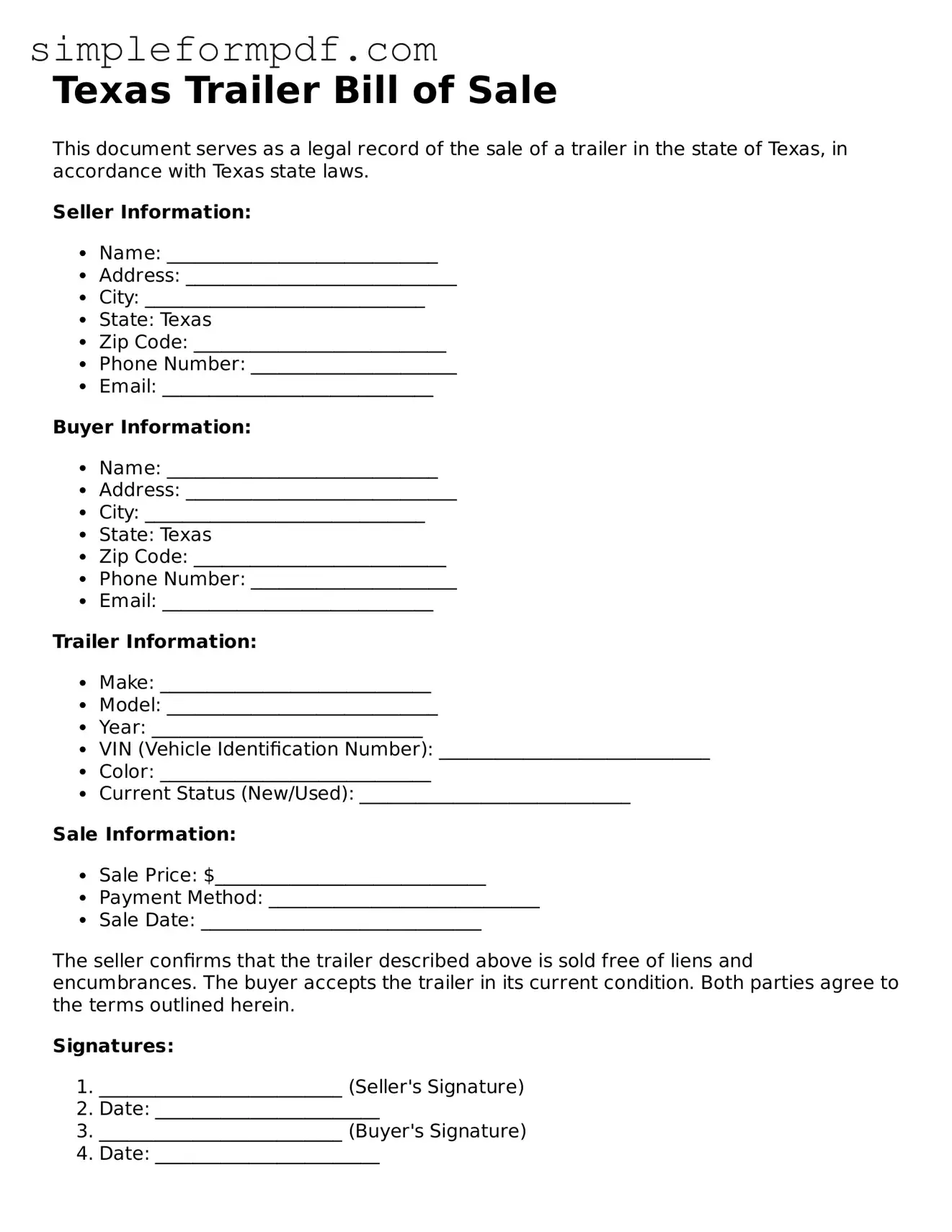Free Trailer Bill of Sale Form for the State of Texas
The Texas Trailer Bill of Sale form is a legal document that records the transfer of ownership for a trailer in the state of Texas. This form serves as proof of sale and includes essential details about the trailer and the parties involved in the transaction. Completing this form accurately is crucial for both buyers and sellers to ensure a smooth transfer of ownership.
To fill out the form, click the button below.
Launch Editor

Free Trailer Bill of Sale Form for the State of Texas
Launch Editor
Need instant form completion?
Finish Trailer Bill of Sale online in just a few minutes.
Launch Editor
or
Download PDF
